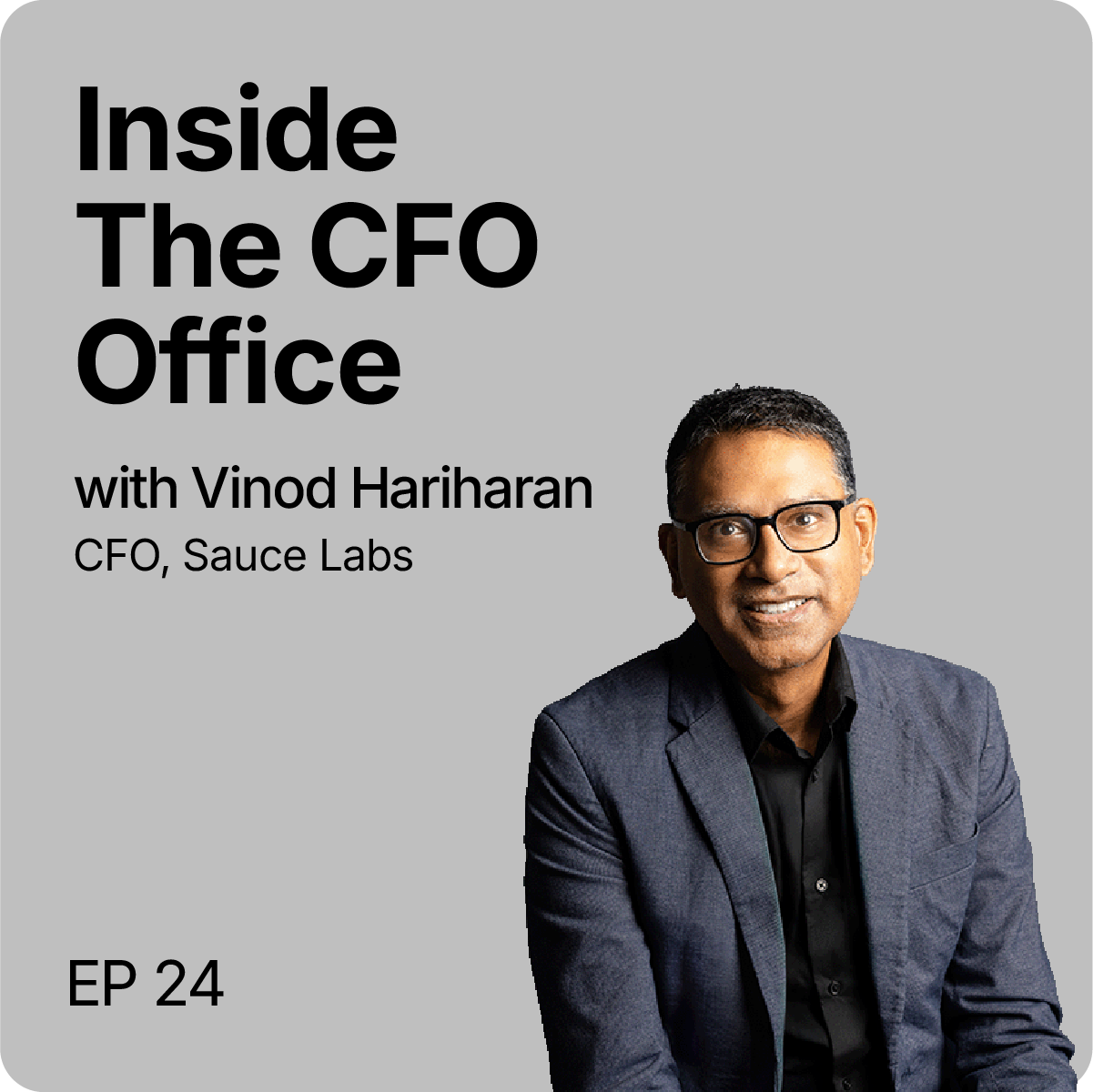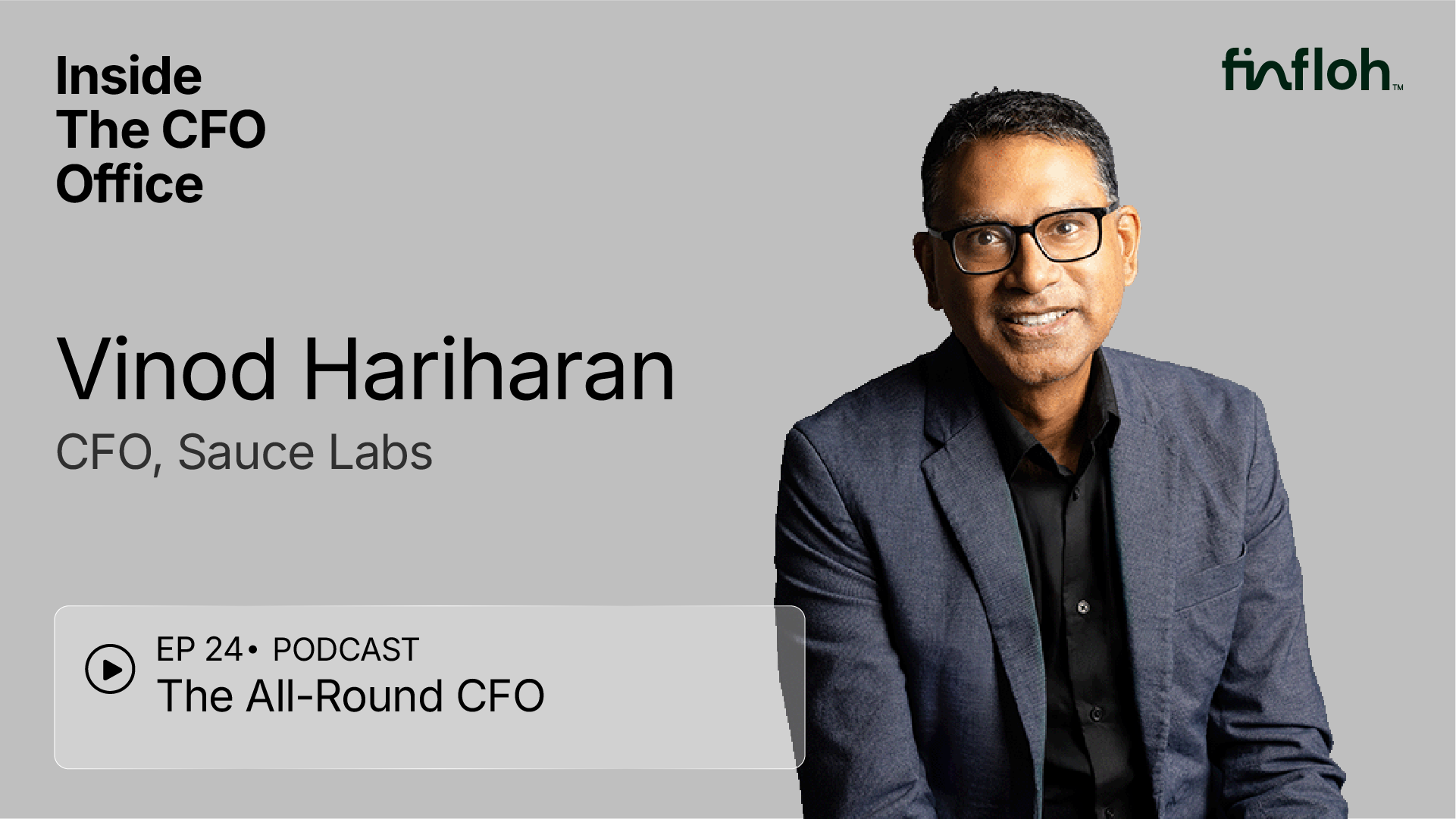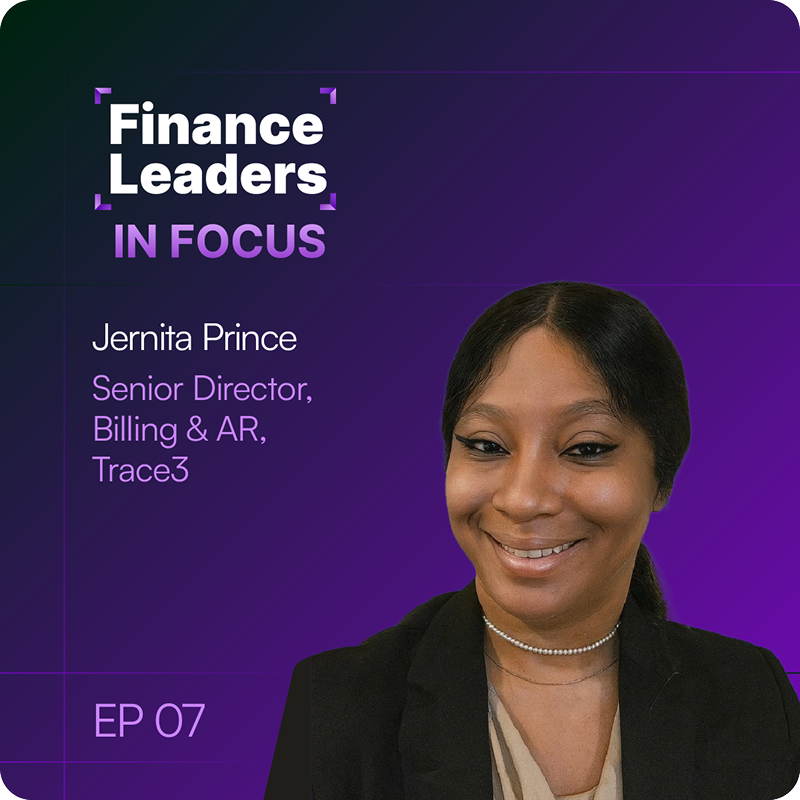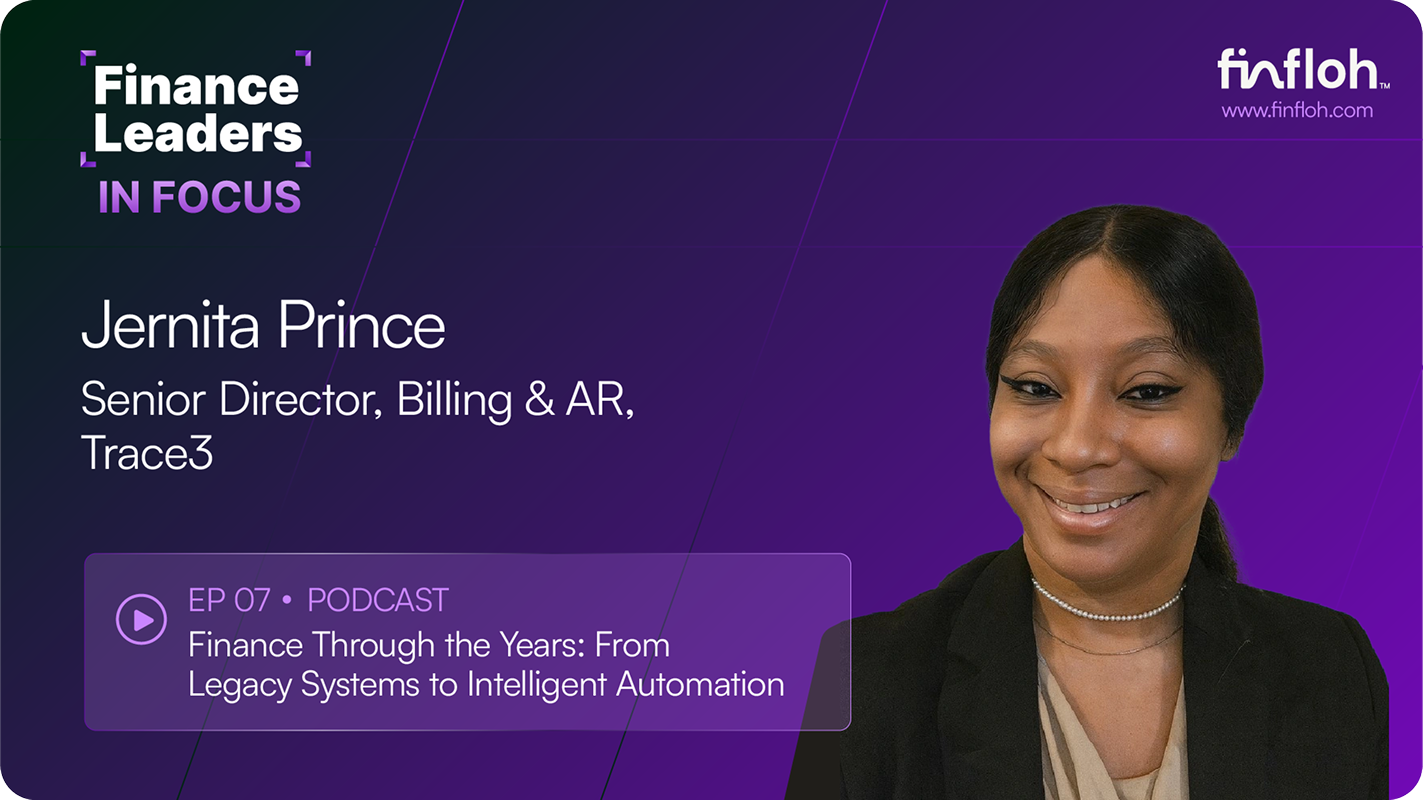Need for CFO Leadership at Small & Mid-sized Firms
Chapters
Key Takeaways
- How AI is reshaping Accounts Receivable management
- Common challenges finance teams face in AR
- The role of predictive analytics in cash flow forecasting
- Practical AI-driven solutions to reduce late payments
Speakers

Guest Speaker
Darren Farry
CEO, The Thoughtful CFO

Hosted By
Amartya Singh
CEO & Cofounder, FinFloh
Episode Transcript
Amartya Singh: Hello everyone! I'm your host, Amartya Singh, co-founder and CEO of FinFlow, a product built by and for modern finance teams. We are back with the fifth episode of our podcast series, Inside the CFO Office, an exclusive channel for finance professionals to learn more about the journeys of finance leaders and trailblazers in the CFO office.
In today's episode, we focus on the need for CFO leadership at small and mid-sized firms. I am super excited to have Darren Farry as a guest to share his journey with us. Darren has 25 years of rich experience in finance leadership across companies of various shapes and sizes. He currently serves as the CEO of Thoughtful CFO and has been the CFO at Electric Puppets. Darren has also worked in finance leadership roles at firms like Unitron Global and Descartes Systems Group.
On a personal note, I’ve had some great discussions with Darren about our go-to-market strategy for FinFlow’s product and his journey. He’s shared some incredible insights about our use cases for credit risk coding and accounts receivable, particularly how our product links with billing and CRM systems like Salesforce and impacts sales teams. Those discussions were inspiring and insightful. So, welcome, Darren, to our podcast! I hope you’re doing great.
Darren Farry: It’s great to be here, Amartya. I really appreciate the opportunity.
Amartya Singh: Thanks, Darren. Let’s kickstart the podcast. First up, I’d love to hear about your finance leadership journey—your experiences working with startups, enterprises, and firms of different sizes, culminating, of course, in your fractional CFO role. How has the journey been over the last 25 years? I’m sure it’s been both challenging and rewarding, with different companies, people, and challenges along the way. We’d love to hear your story.
Darren Farry: It’s hard to believe it’s been 25 years, but yes, that’s about right! I graduated from Wilfrid Laurier University here in Waterloo with a Bachelor of Business Administration. Initially, I didn’t plan to go into finance, but my first job out of school was in a finance department. I had a couple of mentors there—both accountants—who encouraged me to pursue a designation if I wanted to grow in finance.
At the time, there were three different accounting designations in Canada. I opted for the Certified Management Accountant (CMA) designation, which I’m glad I did. It went beyond just finance and accounting, covering topics like marketing, operations, logistics, and HR. This broader perspective has served me well throughout my career.
Before I completed my designation, I worked as an ERP consultant during the Y2K period, helping implement financial systems. That was a fascinating time, as everyone was focused on ensuring systems didn’t fail. It taught me a lot about system implementation and processes—skills I still use today.
Later, I spent 20 years at Unitron, a division of Sonova, the world’s leading hearing healthcare company. I climbed the ranks there, starting as a financial analyst. Early in my tenure, two senior finance leaders left within weeks of each other. That opened the door for me to step into their roles on an interim basis. I must have done well because the CEO asked me to stay on permanently.
For 10 years, I led finance for Unitron’s Global Headquarters and its Wholesale Division in Canada. After that, I briefly transitioned to sales before becoming Managing Director of Unitron Canada, overseeing marketing, tech support, customer service, and operations. This variety gave me exposure to areas beyond finance, which I thoroughly enjoyed.
Eventually, I launched my own fractional CFO firm, Thoughtful CFO, to help small and medium-sized businesses. It allows me to bring not only financial expertise but also insights into other business areas. It’s been a rewarding journey so far.
Amartya Singh: Got it. One thing that stands out is your extensive experience in the Canadian ecosystem. Canada’s startup and corporate culture is known for being supportive and innovative. Do you primarily work with Canadian firms, or is your scope more global?
Darren Farry: My focus is primarily on Canadian organizations, but I’ve also worked with a few U.S.-based clients. Honestly, I’m open to helping companies wherever they are. I love the variety of industries and challenges I’ve been able to work on, and I’m excited to expand my scope further as opportunities arise.
Amartya Singh: That’s great to hear. You mentioned the Y2K period earlier, which must have been a pivotal moment in your career. We’ll touch on finance technologies later, but I’m curious about your mentors and how their guidance influenced your decision to leap into finance. It’s fascinating how those early decisions shaped your trajectory.
Also, as a fractional CFO, how do you typically work with your clients? How do you help them with growth, bookkeeping, accounting, and other aspects of their journey?
Darren Farry: Great question. One of the things I’ve learned is that small and medium-sized businesses often see finance as purely compliance-focused—record-keeping and historical reporting. What I bring to the table is “future-looking” finance—helping businesses predict and plan for the future.
My first step with any client is stabilizing their financial systems. Often, there’s chaos in their records or processes that needs sorting out. Once things are organized, I move on to benchmarking and implementing metrics to track performance. This gives them a clear picture of their current situation and helps us plan for the future.
For example, I focus heavily on cash flow projections, budgeting, and planning. Many businesses underestimate the value of budgeting, but it’s empowering. A good budget lets you confidently invest in initiatives without worrying about cash flow surprises. It’s about giving founders and CEOs the reassurance they need to make informed decisions and sleep better at night.
On a monthly basis, I sit down with clients to review their financials, track progress, and adjust forecasts as needed. It’s incredibly rewarding to see the difference this visibility makes for them.
Amartya Singh: That’s insightful. You touched on the importance of learning earlier. How do you think finance professionals can stay updated in a rapidly evolving world? And how can they balance the day-to-day chaos with strategic thinking?
Darren Farry: Learning is crucial, but it often gets deprioritized because of how busy people are. Leaders need to create an environment where learning is encouraged and prioritized. It’s not just an “extra” task—it’s an investment in the future.
As an individual, you also need to carve out time for learning. Even setting aside an hour or two each week to watch videos, read articles, or explore new tools can make a big difference. The key is to focus on learning that directly improves your processes or adds value to your role.
In terms of balancing chaos with strategic thinking, it’s about creating systems that streamline routine tasks. When you reduce the time spent on operational firefighting, you free up bandwidth for forward-looking planning. That’s where tools and technology can play a huge role.
Amartya Singh: That’s a great perspective. Darren, let’s talk about Thoughtful CFO. What was your vision when you started, and how has it evolved so far?
Darren Farry: The name “Thoughtful CFO” was my wife’s idea, and it’s a perfect fit. It reflects both innovation and empathy. On one hand, “thoughtful” means creative problem-solving and innovative ideas. On the other hand, it emphasizes caring and understanding.
My vision is to bring both of these elements to my clients. I want to help them implement systems and strategies that improve their businesses while also fostering a positive culture. People spend a significant portion of their lives working, so it’s important to create environments they enjoy being part of.
At its core, Thoughtful CFO is about making finance accessible and empowering for small and medium-sized businesses. I strive to leave clients better equipped to manage their finances confidently and effectively.
Amartya Singh: Got it. Thanks, Darren. You’ve worked with firms of all shapes and sizes, from global organizations to startups. Could you share some of the most interesting and challenging experiences you’ve had in your career so far? What were the key takeaways from those moments?
Darren Farry: Sure, Amartya. One of the most memorable experiences was during my time at Unitron. As I mentioned earlier, I stepped into a leadership role quite suddenly after two senior finance leaders left within weeks of each other. It was a trial by fire, but it taught me the importance of adaptability and being prepared to seize opportunities when they arise. That role significantly shaped my leadership style and confidence.
Another challenging yet rewarding experience was transitioning from finance to sales leadership. Managing the entire Canadian division of Unitron exposed me to marketing, tech support, and operations. The steep learning curve was intimidating, but it underscored the value of collaboration and leveraging the strengths of your team. That experience broadened my perspective and helped me become a more well-rounded leader.
Amartya Singh: Those are amazing stories, Darren. It’s clear that stepping out of your comfort zone has been a key factor in your growth. What advice would you give to finance professionals looking to advance their careers?
Darren Farry: My advice would be to embrace learning and seek out challenges that push you beyond your current capabilities. Growth doesn't happen within the confines of comfort. Look for opportunities to work on projects or roles that stretch your skills, even if they’re outside your immediate area of expertise. These experiences build adaptability, confidence, and a broader perspective.
Another key piece of advice is to focus on building relationships. Networking within and outside your organization can open doors to mentorship, collaborations, and learning opportunities. Strong relationships are invaluable for both personal and professional growth.
Lastly, develop a strategic mindset. Don’t just focus on numbers—understand the bigger picture of how finance connects to other business areas like operations, marketing, and sales. The more you align finance with the company’s overall strategy, the more valuable you’ll become as a leader.
Amartya Singh: That’s fantastic advice. It’s clear that your journey has been fueled by a combination of learning, adaptability, and collaboration. Before we wrap up, is there anything else you’d like to share about your vision for the future or the evolving role of CFOs?
Darren Farry: Absolutely, Amartya. The role of the CFO is becoming increasingly dynamic. It’s no longer just about managing numbers; it’s about being a strategic partner to the business, driving growth, and enabling innovation. As technology continues to evolve, CFOs will need to harness data analytics, AI, and other tools to make more informed and forward-looking decisions.
For Thoughtful CFO, my vision is to continue helping businesses navigate this shift. I want to empower more small and medium-sized companies to view finance as a strategic asset rather than just a compliance function. By simplifying financial processes and fostering a culture of learning, I hope to enable these businesses to thrive in today’s complex and competitive environment.
Amartya Singh: That’s an inspiring vision, Darren. Thank you so much for sharing your journey and insights with us today. It’s been a pleasure having you on the podcast.
Darren Farry: Thank you, Amartya. It’s been a wonderful conversation, and I appreciate the opportunity to share my thoughts. Wishing you and FinFlow continued success!
Amartya Singh: Thank you, Darren. And to our listeners, thank you for tuning in to the fifth episode of Inside the CFO Office. Stay tuned for more inspiring conversations with finance leaders. Until next time, take care and stay curious. Goodbye!
Thanks, everyone, for joining the fourth episode of the Inside the CFO Office podcast. We look forward to seeing you in the fifth episode. Have a great day!
Latest Episodes






Explore the Full Potential of FinFloh
Supercharge Your Receivables Performance